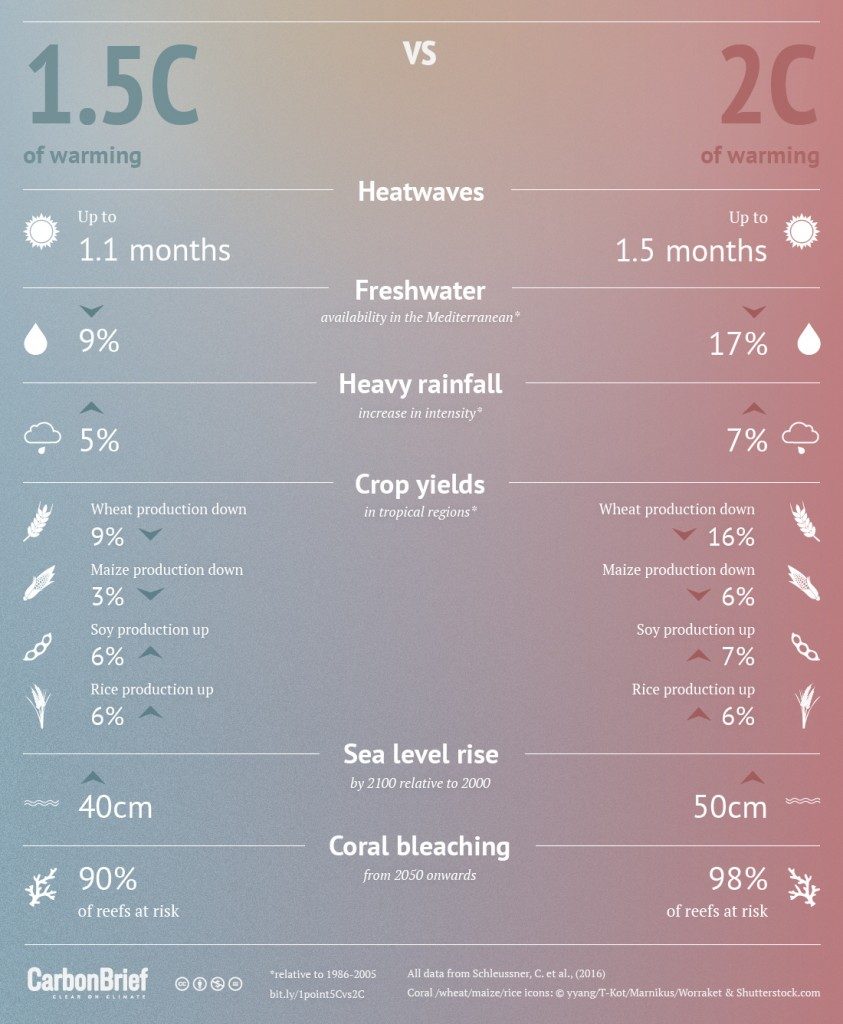Global temperatures are likely to reach 1.5°C between 2030 and 2052 – literally around the corner. We have ten years before we start experiencing some of the more severe global effects of climate change.
The Intergovernmental Panel on Climate Change (IPCC) recently presented a long awaited report showing that the worst aspects of climate change will occur much sooner than previously predicted.
Most nations have been working on a target of reducing global warming to 2°C in the next century, including through the Paris Climate Agreement.
However, some concerned governments and researchers asked what a 1.5°C temperature increase would look like.
A group of researchers agreed to volunteer their time to find out, including 91 scientists from 42 countries. They reviewed 6000 studies, responded to 42,000 comments from governments and scientists, and worked for a year and a half voluntarily.
Their findings showed that a warming of 1.5°C looked much closer to 2°C than previously thought, and that the damaging impacts will come with less warming and far sooner than previously believed.
The IPCC report suggests that if nothing is done to make drastic reductions in greenhouse gases immediately, we can expect severe weather conditions, melting of polar ice sheets, loss of habitat, destruction of all coral reefs, severe food losses, extreme poverty and famine, severe droughts, major sea level rise, crop losses, political and economic unrest all within our lifetimes.
The scientists also recommended some major policy prescriptions to world leaders, including rapid innovations in technology, changes to farming and adoption of renewable energy.
The IPCC and many other researchers believe that the most powerful and effective way of reducing the impacts of climate change is to put a price or a tax on carbon dioxide pollution.
They reference Yale economist and Nobel Prize Winner William Nordhaus’ theory on global climate change economics – a market incentive to solve climate change. By placing the costs on the producer, consumer purchasing behaviour would force companies to adopt less carbon intensive production processes.
Read the full IPCC report here
The impacts of climate change at 1.5, 2 degrees and beyond
Read more about William Nordhaus’s researchV
View the Climate Council’s report

Source: Carbon Brief
Read next: Latest News
